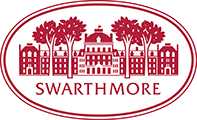ITS probably can’t help you with your plans for world domination, but we do have lots of computing power that we can share with you this summer.
Virtual Desktops – If you are running projects that can use extra Windows-based systems, we have a pool of “virtual” computers that run on ITS servers and can be accessed from anywhere. You can run a processor-intensive job on the virtual computer and leave your desktop computer free to perform other operations. This is also useful if your program needs to run under Windows but you have a Mac or Linux system. If you want to try it out, you can log in at vmware-view.swarthmore.edu. You will need to install the VMWare View client software (available in the SC256 and Trotter 201 computer labs or via a download on the aforementioned link).
TeraGrid – Swarthmore has access to some of the largest research computing systems in the world through TeraGrid. If your calculations take more than 8 hours to run on your local system, you may want to consider running your calculations in parallel using the supercomputing resources available to us.
Linux Systems – In the summer the computing resources for the college are reduced and ITS can offer access to Linux servers from June 1 to August 1. The support options for these systems are limited, but if you are a Linux pro and want to run your programs on a more powerful system, this may be an option for you.
Video Processing – The Media Center has five high-end Macs that are set up for multimedia design. In addition, all the Media Center computers are linked together and can be used to distribute the final rendering of a video over several high-performance computers. If you are working on a video project and your video processing takes forever, contact us to see if we can help.
There are a variety of other options we can help you with, so let us know your specific needs so that we can figure out how best to help you. For more information on these and other ideas, contact your Academic Technologist: Eric Behrens(Humanities), Doug Willen (Social Sciences), or Andrew Ruether (Natural Sciences and Engineering).
